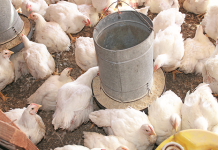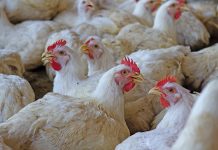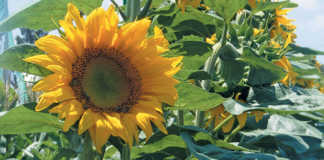I sometimes laugh at my brother when he sends his two-year-old son to visit his granny in Jericho for the weekend. The stress the poor chap undergoes has to be seen to be believed. It’s the bugs, you see. Stanley is convinced that the place is heaving with all sorts of goggas and germs ready to bite or infect his lad. He is so paranoid that he packs everything, including water, for the boy.
Stanley is not alone in his fears. One cannot switch on the television without seeing adverts for hygiene products, from bleach to clean wipes to exotic soaps. Inevitably, this helps to make parents overprotective. We wash and wipe our children non-stop and shout at them whenever they play with dirt. And adults are just as fussy about their own health; notice the number of people who wipe their trolley handles with germ-killing wet wipes these days?
Having grown up in Jericho on a subsistence farm, I find all this a bit silly. Who protected me from those same germs when I was a youngster? And would my health have been any different today had I been mollycoddled during those years? Judging by what I’ve read, it would have been worse. Many experts are convinced that exposing young bodies to some germs boosts the immune system. If that’s the case, my immune system, and those of my friends, is as strong as iron.
When we were small, we walked barefoot everywhere in all weathers. We milked the cows dutifully, then crawled under the animals to milk them again – directly into our mouths. We drank raw goat milk just as enthusiastically. We picked wild cucumbers and other wild fruit, rubbing it on dirty T-shirts and eating it as is.
Disgusting? Perhaps, but this is how it happened.
The science of immunity
According to a study published in the Journal of Allergy and Clinical Immune Development, growing up on a farm and drinking raw cow’s milk promote robust childhood immune development. The study found that children raised on farms, especially smaller farms where few chemicals are used, tend to have fewer allergies and other auto-immune problems than children raised away from these environments. In particular, these farm kids are up to 26% less likely to develop asthma.
I can back this up. When I was a schoolboy, I never met anyone with asthma; it was a sickness that existed only on TV. Today, as an adult in the city, I notice that it seems to be a fairly common problem. The study also emphasised that exposing children to a natural environment and to organic food imparts immunity in a way that no other intervention can. “Farm environments teach the immune system how to tolerate natural environmental factors that would otherwise cause immune disturbance,” the researchers say.
We ‘clever’ humans often forget to learn from nature. People have grown up with animals and in outdoor environments for thousands of years. Could it be that our immune systems are tuned to develop normally in this environment? Whatever the answer, I certainly have little concern about sending my daughter to visit her grandmother during the next holiday.













